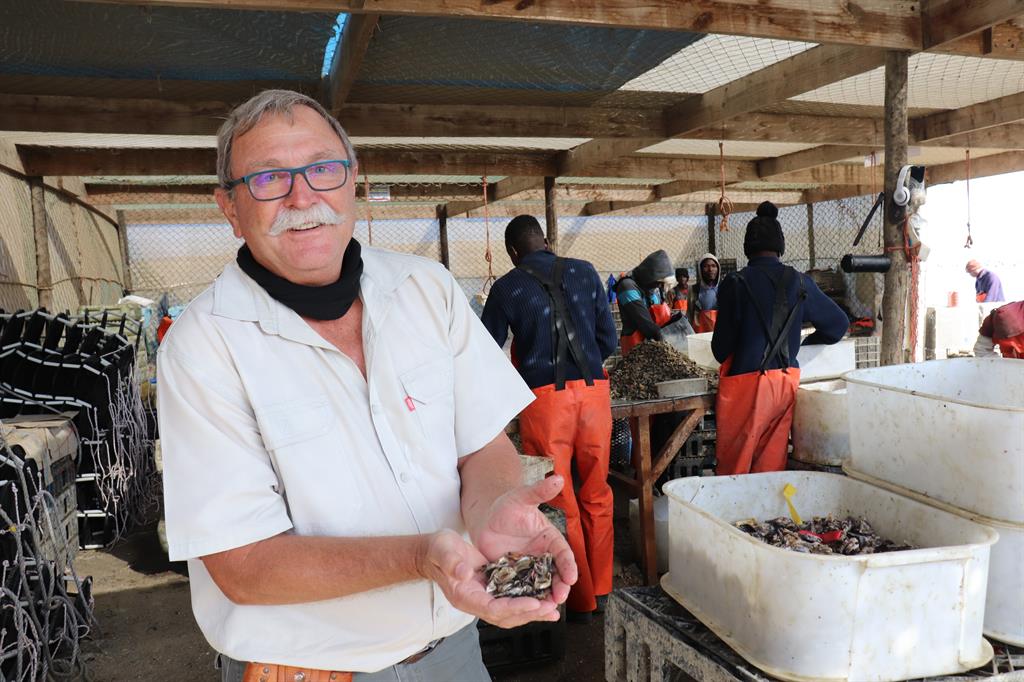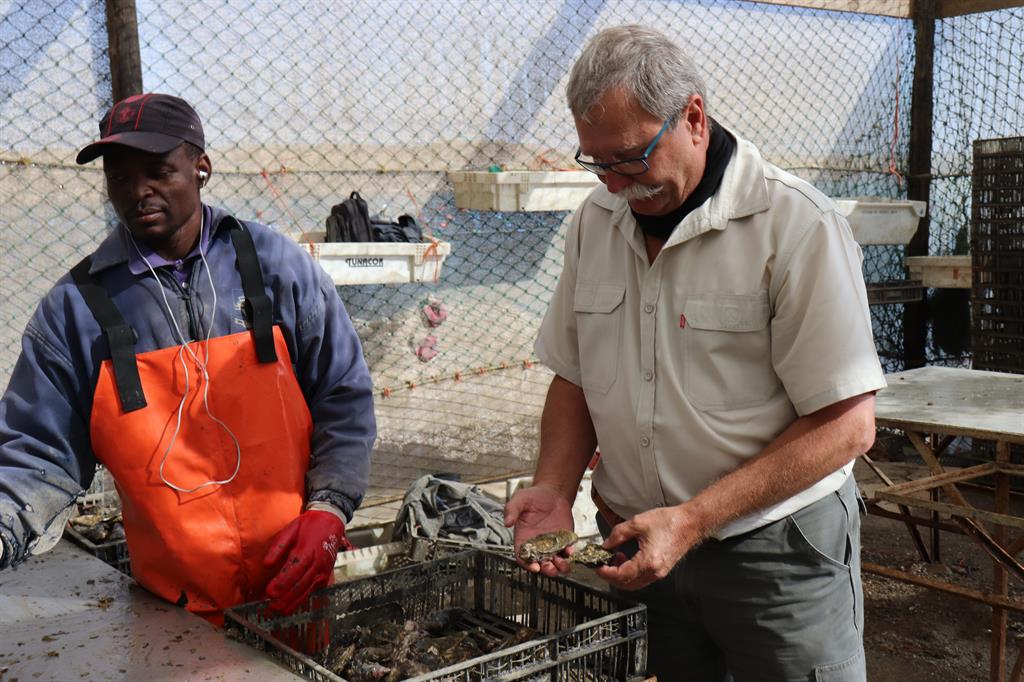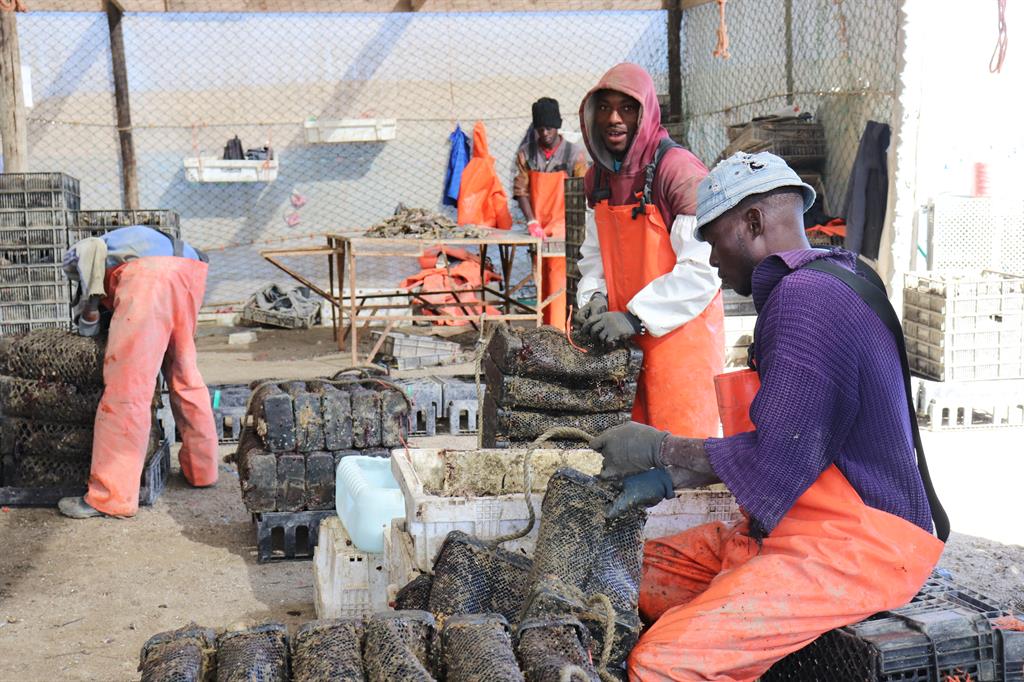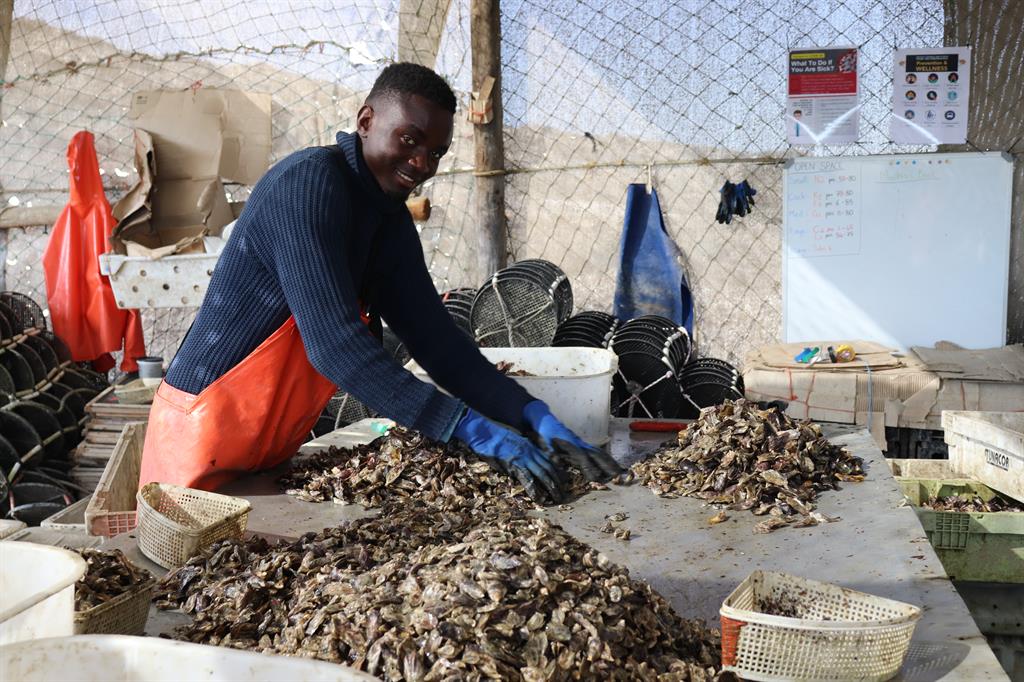Oysters - Pure taste of the Sea
Namibian oysters have become a world-renowned delicacy. In the meantime most people are not aware of the fact that many of these coveted molluscs only spend their first and last weeks in Walvis Bay. They spend their time in between on Gerd Kessler's Aquaculture Farm in the bay of Lüderitz. Here they thrive and grow with most of the oyster breeders being supplied by this wholesale business.
This mariculture farm is located in what is known by locals as “Grosse Bucht” outside Lüderitz, where hundreds of thousands of oysters are found in special baskets, suspended in the sea for many months. They are regularly brought ashore in order to clean the shell of these marine animals, at which time they are separated and sorted according to size. This is important, as the smaller molluscs otherwise do not take in enough food, in the process hampering their growth, explains Kessler. After cleaning and sorting, the oysters are placed back into the baskets, which have also undergone a cleaning exercise. Several of these containers are attached one above the other to a sturdy tow, so that they are suspended freely in the sea water. As a result the oysters are not penetrated by alluvium or sand, thus ensuring a most enjoyable delicacy. Unfortunately you have no chance of finding a pearl in any of these shells, as these treasures are not found in the Pacific Oyster, which species is grown at the Aquaculture Farm.
The process is intriguing: Kessler buys baby oysters with a size of 4 to 6 millimetre by the kilogram in Swakopmund and has them placed into specially constructed wooden containers, in which they are kept at set temperatures while supplying sufficient feed for around two months. “One needs to assess molluscs according to their width”, explains this heart and soul “Buchter”, who started farming with oysters seven years ago. When the marine animals have reached the appropriate size, they are placed in the previously mentioned baskets for further growth. After a couple of months these oysters will have grown to a size or weight which allows them to be sold wholesale to other oyster farmers.
The taste of this seafood is simply incomparable - if you should ever have the opportunity to order or buy Namibian oysters, you should certainly not let it pass you.
This mariculture farm is located in what is known by locals as “Grosse Bucht” outside Lüderitz, where hundreds of thousands of oysters are found in special baskets, suspended in the sea for many months. They are regularly brought ashore in order to clean the shell of these marine animals, at which time they are separated and sorted according to size. This is important, as the smaller molluscs otherwise do not take in enough food, in the process hampering their growth, explains Kessler. After cleaning and sorting, the oysters are placed back into the baskets, which have also undergone a cleaning exercise. Several of these containers are attached one above the other to a sturdy tow, so that they are suspended freely in the sea water. As a result the oysters are not penetrated by alluvium or sand, thus ensuring a most enjoyable delicacy. Unfortunately you have no chance of finding a pearl in any of these shells, as these treasures are not found in the Pacific Oyster, which species is grown at the Aquaculture Farm.
The process is intriguing: Kessler buys baby oysters with a size of 4 to 6 millimetre by the kilogram in Swakopmund and has them placed into specially constructed wooden containers, in which they are kept at set temperatures while supplying sufficient feed for around two months. “One needs to assess molluscs according to their width”, explains this heart and soul “Buchter”, who started farming with oysters seven years ago. When the marine animals have reached the appropriate size, they are placed in the previously mentioned baskets for further growth. After a couple of months these oysters will have grown to a size or weight which allows them to be sold wholesale to other oyster farmers.
The taste of this seafood is simply incomparable - if you should ever have the opportunity to order or buy Namibian oysters, you should certainly not let it pass you.










Kommentar
Allgemeine Zeitung
Zu diesem Artikel wurden keine Kommentare hinterlassen